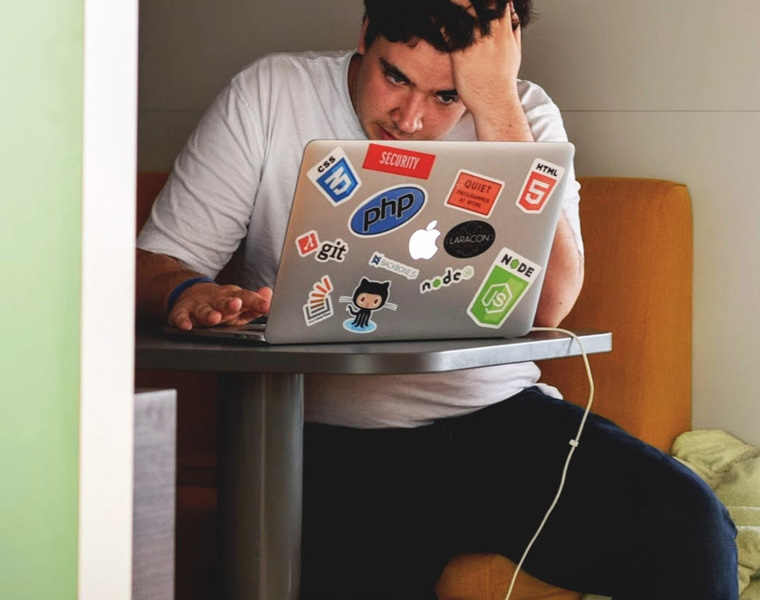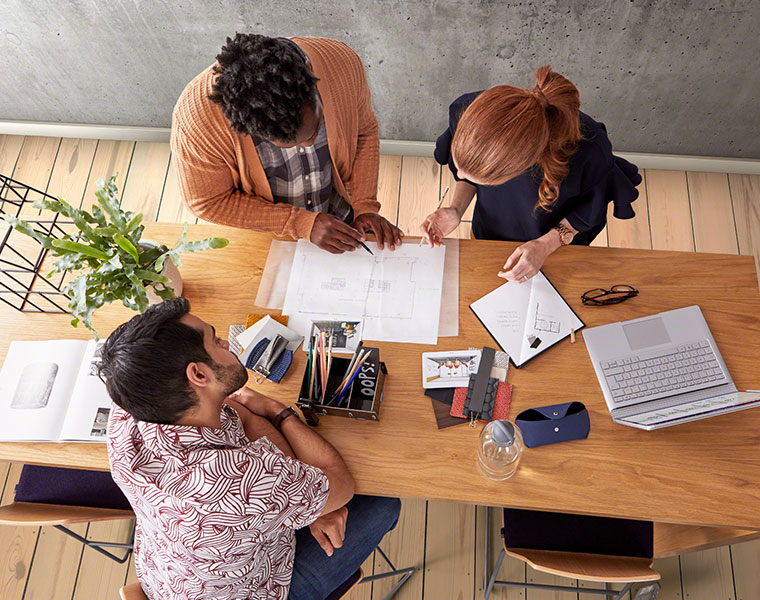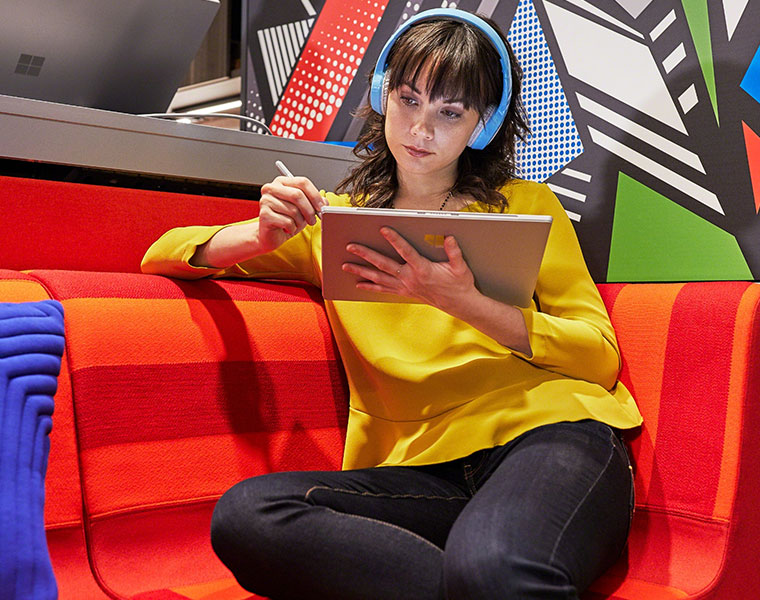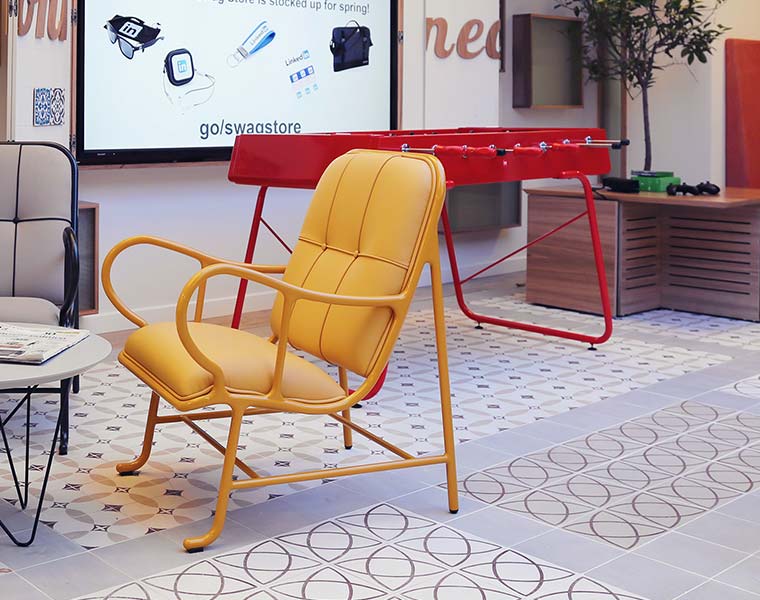In a world where we’re constantly connected, operating at 100mph and never reaching the end of our to-do lists, burnout and cognitive overload are both very familiar concepts.
Some of the best ways to manage burnout and overload are:
- Aiming for at least 8 hours of sleep every night
- Taking regular breaks
- Switching off from technology when you can
- Striking a healthy work-life balance
- Making sure you keep a well-organised diary or planner
- Keeping your office clean and clutter-free
These are all common workplace stress management tactics so we don’t want to just cover old ground all over again. What we want to do here rather, is explore some of the less obvious ways you can avoid – or at least reduce – the amount of time your head is left feeling frazzled.

Our advice:
Switch work settings throughout the day
As humans, we tend to get distracted easily and lose focus for significant periods of time. One way to address this is to work in a more agile way and choose your work settings according to mood and requirement rather than tradition or habit.
For example:
If you struggle to concentrate when making phone calls at your desk, consider moving to a more comfortable and private setting so you can carry out the task more effectively.

Find ways to be more physically active at work
The mind and body are two intrinsically connected things – when one is healthy, the other has a better chance of being healthy too.
Moving more throughout the day will improve flow of oxygen around the body and enhance cognitive function, thought clarity and focus.
Ways you can be more active in the office:
- Walking meetings
- Phone calls on foot
- Sit-stand desks
- Exercise during your lunch hour

Take advantage of both digital and analogue creativity
Technology detoxes and ‘switching off’ are tried and tested ways to destress and refocus. This doesn’t just have to mean turning your phone off while you have a bath in the evening though.
Create a more equal balance between tech and non-tech tasks during the working day too by embracing both digital and analogue methods of work.
How?
Well, you might spend part of your day using various technology to get jobs done but then there might be other parts of the day where you put down your devices in favour of tech-free creativity.
Write-on walls, brainstorm sessions with pens and paper, and sticky note collaboration are all great examples of analogue work.

Bring a bit of the great outdoors inside
Introducing natural elements such as indoor plants, water features, organic fabrics and plenty of natural light into the workplace is an effective way to encourage cognitive clarity and mental wellbeing.
The benefits of biomimicry have been proven time and time again, as have the advantages which come of improving the quality of your indoor air.

Use office acoustic solutions to aid noise control
Excess noise and audio distraction are some of the most common causes of workplace frustration and stress – particularly in open plan working environments where sound can travel more freely.
Put some acoustic solutions in place to help absorb excess noise in shared work settings and be sure to provide plenty of private spaces where employees can go to find total solitude where necessary.

Make the workplace more fun
As we spend more and more of our lives at work, it’s vital that modern offices are an enjoyable place to be. One of the best ways to do this is by introducing more elements of fun into the workplace such as games rooms, office pets and purpose-built social spaces.
For example:
The Frovi Jig Table (pictured below) is a popular product among our customers and something we actually have in our own Manchester showroom. The table functions as a simple meeting space but can be easily transformed into a ping pong table when it’s time to unwind a little.

Make time for things like yoga and meditation
Last but not least: consider incorporating a space dedicated to things like yoga, meditation and private relaxation as part of your next office fit out or refurbishment project.
This will give employees the chance to rejuvenate during the day and hopefully control their cognitive wellbeing more effectively.



